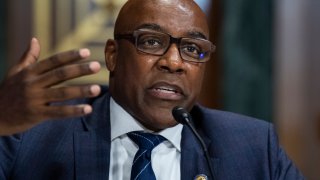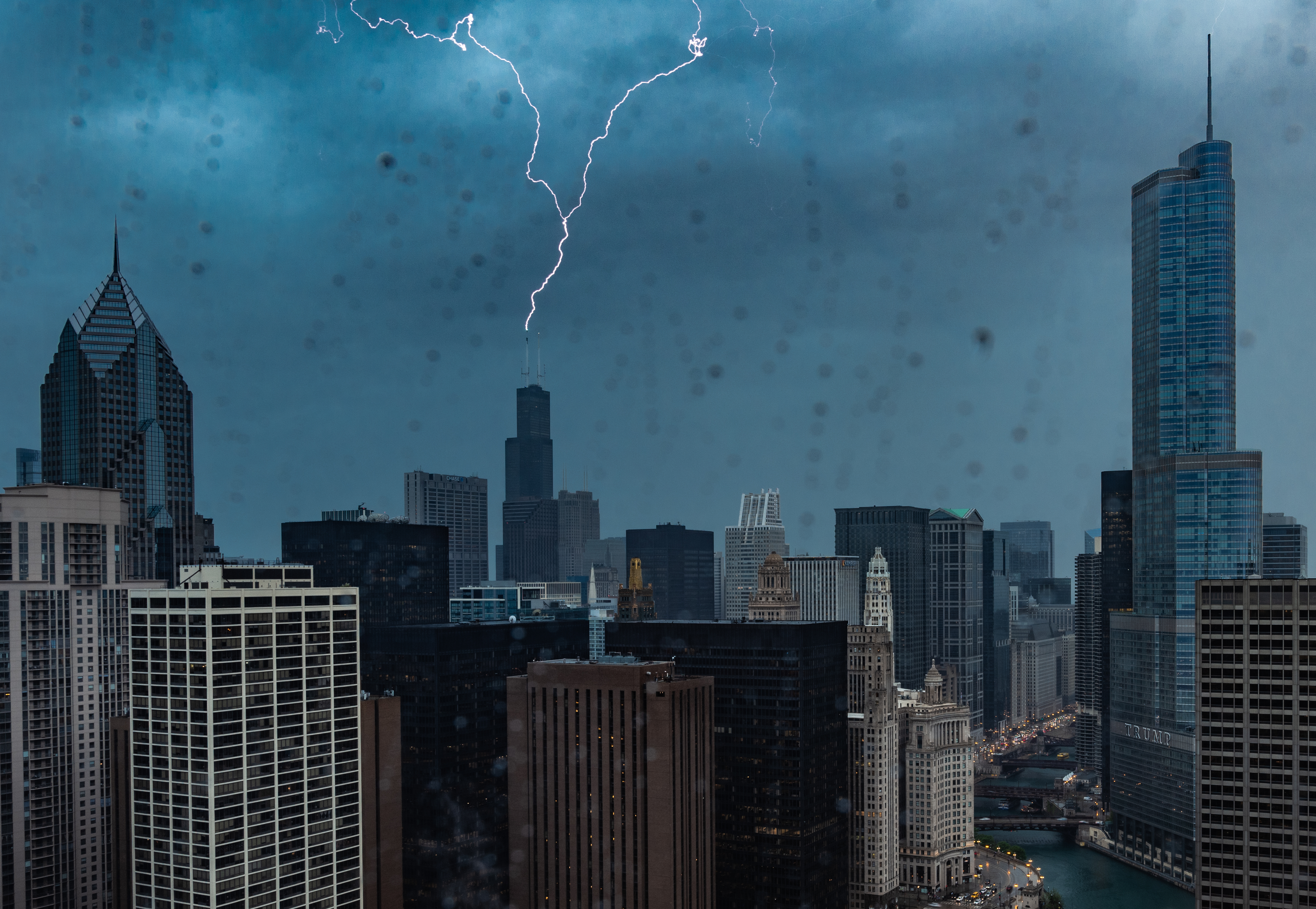
Illinois Attorney General Kwame Raoul asked a federal appeals court Tuesday to put a stop to a federal judge’s ruling in southern Illinois last week that blocked enforcement of the state’s months-old assault weapons ban.
The request comes just two weeks after the same court, the 7th U.S. Circuit Court of Appeals, declined to take similar action when a federal judge in Chicago refused to block the law.
And in the meantime, another bid for an injunction has made its way to the U.S. Supreme Court.
Such is the lay of the legal land four months after Gov. J.B. Pritzker signed the law in January that bans the sale of assault weapons and caps the purchase of magazines at 10 rounds for long guns and 15 for handguns.
Feeling out of the loop? We'll catch you up on the Chicago news you need to know. Sign up for the weekly Chicago Catch-Up newsletter here.
Legal challenges immediately followed, and they have begun to move their way into higher courts.
U.S. District Judge Stephen McGlynn, who is based in southern Illinois, temporarily blocked enforcement of the assault weapons ban Friday, saying it not only restricted the right to defend oneself but, in some cases, “completely obliterated that right.”
State lawyers appealed to the 7th Circuit appellate court and, on Tuesday, they asked it to block McGlynn’s ruling. They called it “unprecedented” and noted that it conflicts with two rulings earlier this year in Chicago’s federal court.
Local
They also said it “is the only federal decision in the country” they are aware of that “enjoins restrictions on assault weapons” or large-capacity magazines under a decision handed down by the U.S. Supreme Court last year.
That ruling, in New York State Rifle & Pistol Association v. Bruen, held that gun regulations must be “consistent with the nation’s historical tradition of firearm regulation.”
State lawyers wrote that McGlynn’s decision “threatens significant, irreparable harm to the public.” The assault weapons ban was enacted in response to the mass shooting at Highland Park’s Fourth of July parade that left seven people dead.
They also wrote that McGlynn’s ruling followed, but did not acknowledge, the 7th Circuit’s recent decision not to block the law in a case that had reached it earlier.
That case involved Naperville gun shop owner Robert Bevis. U.S. District Judge Virginia Kendall in Chicago denied a motion from Bevis in February that sought to block the assault weapons ban. Bevis then asked the appellate court to block the law, but it declined.
Last week, U.S. District Judge Lindsay Jenkins in Chicago issued a ruling that echoed Kendall’s.
But the case involving Bevis, which started with Kendall, has now moved on to the U.S. Supreme Court and Justice Amy Coney Barrett.
Bevis has asked the Supreme Court for an injunction against the assault weapons ban and a similar Naperville ordinance while appeals in his case continue. Barrett has asked opposing lawyers to respond to the request by Monday morning.



